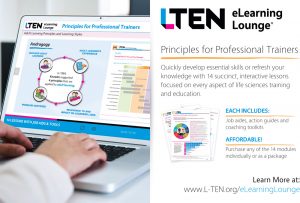The Secret to Staying Composed Under Pressure
Leadership/ManagementDevelopment – By Dr. Rob McKenna
While process may structure our movement forward, purpose is the keel of composure.
If life and work were always a box of chocolates, then composure wouldn’t be necessary. Composure is all about our ability to show up well during the highest-pressure moments – standing firmly in who we are while remaining open to the needs and perspective of others. For some, pressure moves us to pay more attention to what we think, need or feel. For others, the temptation is to focus our attention on what others need. Either way, there is a strong temptation to react out of compulsion as opposed to intention. Pressure is the constant for all of us. The variable is how we handle it.
 After nearly two decades of studying leaders and their capacity to compose themselves when it matters most, three things have become clear:
After nearly two decades of studying leaders and their capacity to compose themselves when it matters most, three things have become clear:
- Pressure is a reality.
- We all have emotional tendencies under pressure.
- And, if we were to be more intentional in our response, it could have an exponential impact on us and on the experience of everyone within our influence.
If being our best selves under pressure is the key, then what has our research and experience on leaders under pressure taught us about the secret to being more composed? Three powerful variables emerged as the key ingredients.
Sense of Purpose
While process may structure our movement forward, purpose is the keel of composure. The most powerful variable impacting a leader’s capacity to compose themselves under pressure was a sense of purpose – a clear and defined reason for being in the situation in the first place. They understood their “why.” Being clear about your purpose in the situation changes your perspective regardless of how frustrated others become, or how much pressure you feel. Knowing cognitive and thoughtful foundation to lean into when others begin to question you, or when you question yourself.
Pressure is the constant for all of us. The variable is how we handle it.
Focusing on Potential
A close second in impact to sense of purpose was an ability to focus on possibilities and potential when everyone else around you may be spinning out of control and seeing barriers to progress. While optimism is seeing a half full glass of water and pessimism is seeing a half empty glass, a focus on potential is realizing you have half a glass of water and considering what you could do with that. When combined with purpose, a focus on what could be, as opposed to what isn’t, is a powerful recipe for composure.
 Taking It Personally
Taking It Personally
Finally, a high sense of purpose and focus on potential was shown to be most powerful for those who take things personally — which is most of us. Pressure has this uncanny ability to make us reactive and reduce our objectivity but identifying purpose and intentionally looking for potential is crucial. That powerful and intentional combination was the key to showing up our best in the most challenging moments – for their sake and for ours.
Dr. Rob McKenna is the founder of WiLD Leaders. Email Rob at rob@wildleaders.org.









